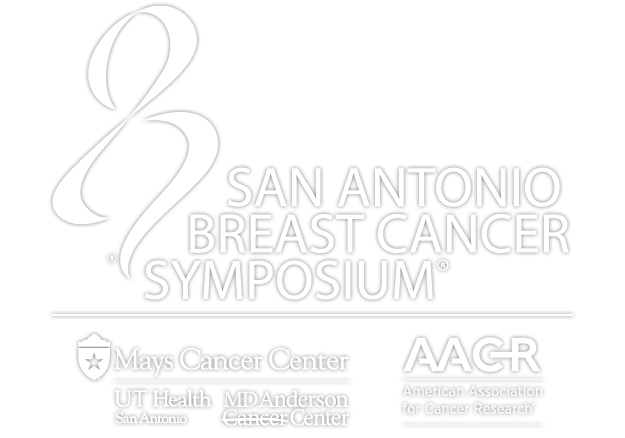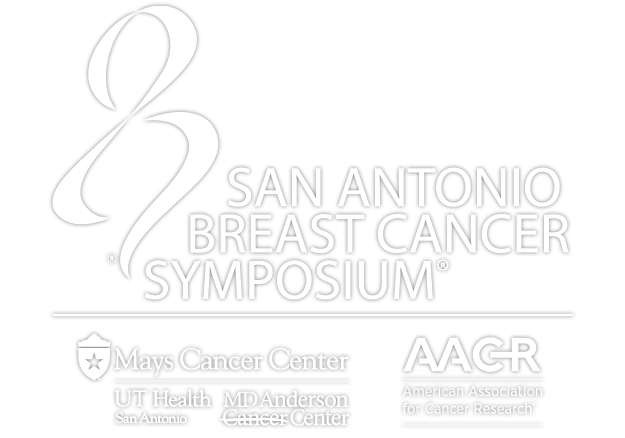Rapid Fire Session 1: Mini-Oral Presentations
Wednesday, December 6 • 12:15 p.m. – 1:00 p.m. • Hall 1
Presentation: The efficacy and safety of tinengotinib in patients with advanced or metastatic HR+/HER2- breast cancer or TNBC

Sarina A. Piha-Paul, MD
The University of Texas MD Anderson Cancer Center
Houston, Texas
What is your presentation about?
Tinengotinib is a novel multi-kinase inhibitor with activity against Aurora A/B, FGFR1/2/3, VEGFRs, JAK1/2, and CSF1R. In my presentation, I will report the preliminary efficacy and safety results of tinengotinib for the treatment of HER2-negative breast cancer. Data from both HR+/HER2-BC and TNBC patients in two early phase clinical trials was included (NCT03654547, NCT04742959).
What makes this topic important in 2023?
As a spectrum-selective multi-target kinase inhibitor, tinengotinib has a unique mechanism of action via comprehensive modulation of several hallmarks of cancer including cell cycling, epithelial-mesenchymal transition (EMT), lineage plasticity and others. Tinengotinib given as monotherapy as well as in combination with nab-paclitaxel has anti-tumor efficacy and clinical benefit in heavily pre-treated patients with refractory HR+/HER2-BC or TNBC. Tinengotinib monotherapy has shown a reversible and manageable side effect profile. Furthermore, tinengotinib may have therapeutic potential for overcoming CDK4/6 inhibitor resistance in HR+/HER2- breast cancer which is an area of focus for upcoming clinical studies.
How did you get involved in this particular area of breast cancer research, care, or advocacy?
My area of focus is early phase clinical trials and drug development. As such, when we are seeing interesting preliminary efficacy signals in our early phase studies, it is important to get that information out to the larger scientific community. Leveraging my strong working relationship with our breast medical oncology department, we are working closely with TransThera to develop further studies with tinengotinib both as monotherapy and in novel combinations for patients with metastatic HER-2 negative breast cancer.
Presentation: Efficacy and safety of toripalimab plus metronomic chemotherapy in HER2 negative metastatic breast cancer: a multicenter phase II trial based on a Bayesian adaptive randomized design

Hongnan Mo, MD
National Cancer Center/Cancer Hospital, Chinese Academy of Medical Sciences and Peking Union Medical College
Beijing, China
What is your presentation about?
Accumulating evidence indicate that chemotherapy regimens that can induce anticancer immunity stand out as particularly promising partners for use in combination with immunotherapy. However, there is no known best chemotherapy backbone at present, especially in immune-cold tumors. My presentation describes our prospective phase 2 clinical trial comparing metronomic chemotherapy with conventional chemotherapy as a chemo-backbone for immunotherapy in patients with breast cancer. This is a randomized study using a multi-arm design with Bayesian adaptive randomization and efficacy monitoring. I will present the efficacy and safety profile of various combination immunotherapy regimens, including the combination of metronomic chemotherapy and PD-1 blockade.
What makes this topic important in 2023?
In the context of patients with immune-cold tumors, such as breast cancer, the selection of suitable backbone drug in conjunction with immunotherapy holds greater clinical significance than the identification of limited beneficiary subgroups. Despite the promise and expanding clinical use of chemotherapy used in combination with immune checkpoint inhibitors, few clinical trials are attempting to systematically determine the most effective combination of chemotherapy and immunotherapy. Currently, combination immunotherapies rely on clinical perspective and empirical data, sometimes with a weak scientific rationale. This has led to a high prevalence of clinical studies designed to test drug combinations.
How did you get involved in this particular area of breast cancer research, care, or advocacy?
In breast cancer, the application of immunotherapy is more tortuous. The anti-PD-L1 antibody atezolizumab showed disparate outcomes as first-line therapy for metastatic TNBC when combined with nab-paclitaxel in IMpassion130 vs solvent-based paclitaxel in IMpassion131. We have previously demonstrated that solvent-based paclitaxel reduces the level of CXCL13+ T cells and other immune cells critical for atezolizumab to work, leading to the inferior efficacy of atezolizumab in TNBC. Immunostimulatory chemotherapeutics stand out as promising partners for combination regimens involving immune checkpoint inhibitors, although additional research is required to identify the optimal regimens.
Chemotherapy drugs administered in conventional therapies are typically given at the maximum tolerated dose. As a result, they tend to have immunosuppressive effects owing to cytostatic and cytotoxic effects on various immune cell subtypes, counteracting the intended therapeutic effect of immunotherapy. One way to overcome this problem is by administration of chemotherapy at much lower doses, continuously, without drug- free break periods. This treatment regimen is known as metronomic chemotherapy. Preclinical experience suggests that low-dose, metronomic schedules are generally more immunostimulatory than comparatively more intense treatments, although whether the same observations hold true in patients with cancer remains unclear. These studies further prompted us to explore the combination of metronomic chemotherapy and immunotherapy in patients with breast cancer.



